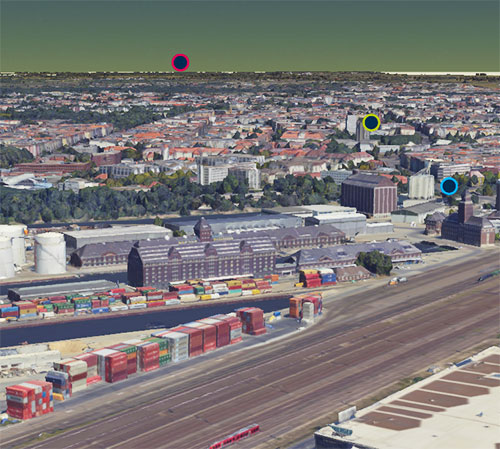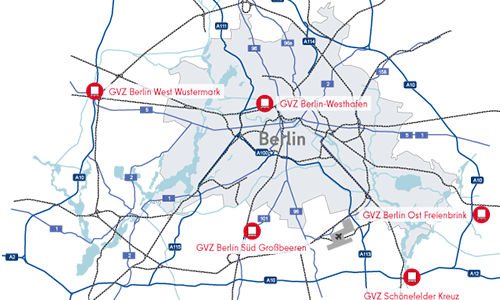Berlin – a hub for logistics
Logistics companies find ideal conditions in Berlin: modern freight transport centers, comprehensive infrastructure, and fast transport connections.
With the Technical University of Berlin (TU Berlin), Berlin has one of Europe's leading teaching and research institutions in logistics, complemented by renowned companies that develop and market a wide range of logistics services globally.
In globally networked markets, successful economic regions distinguish themselves through efficient transport and information infrastructure and well-developed logistics systems for industry, trade, and services.
Location advantages for logistics companies
- Central hub for European traffic and goods flows
- Transport hub: 6 motorways, 10 main railway lines and 2 high-speed rail lines (Berlin–Leipzig and Berlin–Munich), 3 waterways
- Modern airport with international express services
- Highest density of freight transport centers (GVZ) in Germany
- Three freight village in the capital region are among the top 20 in Europe: Berlin South Großbeeren, City Berlin Westhafen, Berlin West Wustermark (2025 GVZ ranking by the German GVZ Association)
- Around 100 large logistics companies, 26 research institutions, 200,000 employees
- Europe's largest range of teaching and research opportunities in logistics (TU Berlin, TH Wildau)
- German Logistics Congress Berlin as the leading event in the industry
- Highly qualified specialists and managers
- Special funding for plant investments, employee training, and R&D projects
- Real-world laboratories in urban, suburban, and rural areas for innovative mobility and AI-based logistics solutions
- Starting point for new vehicle concepts and intelligent mobility management


